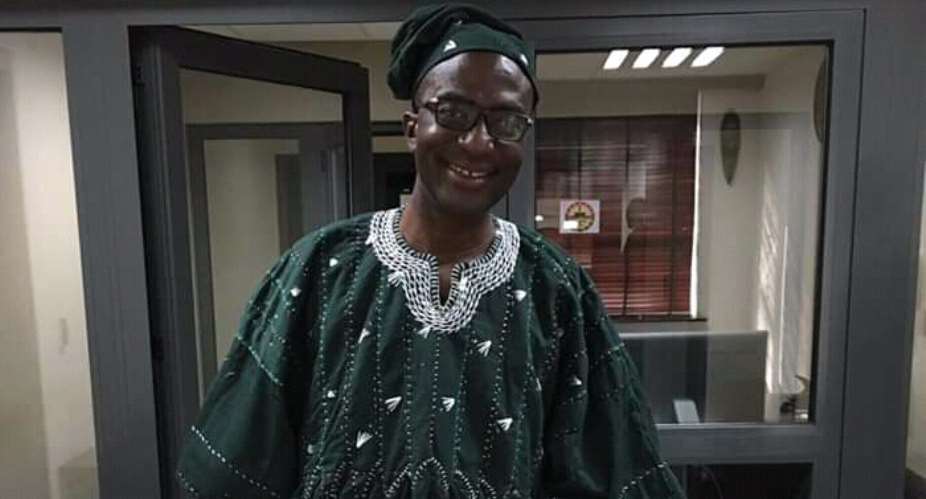The Constitution frowns upon carpet-crossing. The main reason is to avoid a situation where opposition MPs pitch camps with the government for nokofio reasons, leaving a weak opposition and drawing the country closer to a one-party state as happened in the 1960s.
Thus, the restriction seeks to maintain strong opposition and political parties and to check our natural tendency to “worship” those with temporary power.
However, the law also recognizes that elected MPs represent constituencies and have conscience, at least in theory. As such, the restriction on carpet-crossing is carefully balanced against not giving political parties unmerited and unwarranted control over MPs.
Accordingly, the anti-carpet-crossing provision is in the form of “An MP shall vacate his seat in Parliament if he leaves the party of which he was a member at the time of his election to Parliament to join another party or seeks to remain in Parliament as an independent member.”
This raises the question of whether the current Fomena MP has cross-carpet in violation of the law by filing to contest as an independent candidate in 2020.
Looking at the law, one of two things must happen for carpet-crossing:
1. The person must leave the party on whose ticket he became an MP to join another party; or
2. The person wants to remain in Parliament as an independent member.
The first wing has clearly not happened in the Fomena case as the MP has not left the party, at least not voluntarily. The distinction is important because involuntary departures, through suspension, dismissal etc. by the party do not appear to count to the law.
The emphasis on voluntary departure is important to protect the MP from the party. Otherwise, the party can make bye-laws that severely curtail the MP from ever acting independently thereby severely limiting his ability to place his constituents and the nation’s interest above the party.
Moreover, he has not joined another party, at least not publicly. Thus, there is no serious indication that he has vacated his seat under the first-wing of the law.
The second wing is more interesting because the MP clearly wants to remain in Parliament, not just now but even for the next parliament.
Where it gets a little tricky is the independent member requirement. Obviously, we know he wants to become an independent member in the next Parliament but does he want to be so in the current Parliament?
Furthermore, does the law concern itself with future intentions or current actions. If the former then he has clearly vacated his position.
If the latter then the record does not show that he has said he no longer wants to caucus with the NPP in the few days left in this Parliament.
In that case, it cannot be said that he has vacated his seat in this Parliament unless one can reasonably argue that the intention to run as an independent is sufficient proof that he wants to remain in the current parliament as an independent.
This argument triggers the question of whether the “wants to remain” is subjective or objective. That is, should we rely on what the person says or should we evaluate it based on what a reasonable person will think of his actions
This distinction is important because a reasonable person might consider filing as an independent suggests a divorce with your current party even though the Fomena MP does not think that way.
But there is not much in the law that will give a hint that it requires an objective person standard, let alone who such an objective person should be (e.g., reasonable voter versus reasonable party official).
This argument might also have to contend with a significant linguistic barrier. The key phrase, “remain in Parliament” suggests the law contemplates the current parliament of which he is a member but not a future parliament where the phrasing would have been to “become an independent member of the next parliament.”
In soccer terms, merely because a player wants to graduate to the premier club next season does not mean he has vacated his position with his current club. He remains a member of the win-nothing Kotoko even though he wants to become a member of the win-everything Phobia!
Interesting enough the law imposes no such restrictions on the executive thereby allowing then-Vice President Kow Arkaah to run in the 1996 election as the Vice Presidential candidate of the opposition NPP. Similarly, political parties can enter into all kinds of unholy alliances.
Fomena raises intriguing questions and must be answered thoughtfully.





 Saglemi Housing Project will not be left to rot – Kojo Oppong Nkrumah
Saglemi Housing Project will not be left to rot – Kojo Oppong Nkrumah
 Transport fares hike: GPRTU issue two-day ultimatum
Transport fares hike: GPRTU issue two-day ultimatum
 ARC endorses Alan as presidential candidate – Buaben Asamoa
ARC endorses Alan as presidential candidate – Buaben Asamoa
 Akufo-Addo appoints Kwasi Agyei as new Controller and Accountant-General
Akufo-Addo appoints Kwasi Agyei as new Controller and Accountant-General
 PNC dismiss reports of mass resignations
PNC dismiss reports of mass resignations
 PAC advocates for revenue collectors to be engaged on commission basis, not full...
PAC advocates for revenue collectors to be engaged on commission basis, not full...
 Genser Energy commissions 110km of natural gas pipeline at Anwomaso
Genser Energy commissions 110km of natural gas pipeline at Anwomaso
 Naa Torshie calls for tolerance, peace ahead of 2024 election
Naa Torshie calls for tolerance, peace ahead of 2024 election
 Asantehene commends Matthew Opoku Prempeh for conceiving GENSER Kumasi Pipeline ...
Asantehene commends Matthew Opoku Prempeh for conceiving GENSER Kumasi Pipeline ...
 Let’s do away with ‘slash and burn politics’ in Ghana — Dr Adutwum
Let’s do away with ‘slash and burn politics’ in Ghana — Dr Adutwum
